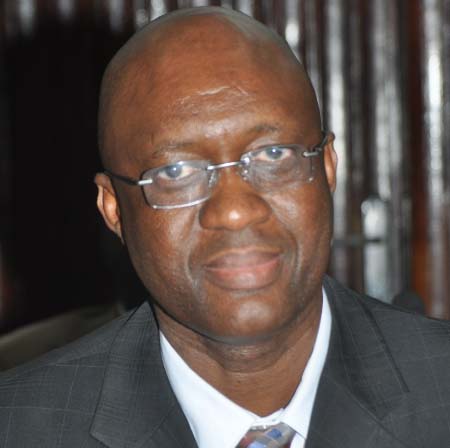
He, therefore, challenged customs authorities in the region to have strategic plans that are understandable and implementable.
Mr Darboe made the remark during the opening of a weeklong World Customs Organisation conference for customs authorities in West Africa, held recently in Monrovia, Liberia.
The conference, which focused on strategic management, was part of the West Africa Customs Administration Modernization (WACAM) project.
He thanked the organisers and the government of Liberia through the Liberia Revenue Authority (LRA) for hosting the conference, which would yield dividends at the end of the training activity.
He also urged his colleagues to deliberate, share ideas and experiences and to adopt best practices when they go back to their respective countries.
Also speaking at the conference was a representative of the World Customs Organisation, Philip Woods, who said the conference was aimed at empowering member countries to investigate information received from the public, because its role is also to ensure that tax revenues are collected effectively.
According to Mr Woods, the conference was being hosted in Liberia based on a request by LRA for strategic management, and added that the training materials would meet the needs of the entity.
He urged LRA to bring under one umbrella all strategic management programmes, and to put in place a systematic direction for its administration.
According to him, the conference was not about developing new plans, but to build capacities, which play a key role in developing excellent strategic plans for implementation in meeting the requirements of the 21st century and the World Customs Organisation (WCO) trade facilitation operations, among others.
The assistant commissioner for large tax, Francis S. Dopoh, said LRA had been conducting data mining analysis of the preliminary results of the rice and petroleum sectors, and gross margin analysis component indicated widespread income tax filing data manipulation.
He said the LRA is responding immediately to the rice issue because “rice is a sensitive commodity”, especially since it is the staple food for the country.
Earlier, the commissioner general of LRA, Elfrieda Stewart Tamba, pledged to raise the country’s customs regimes to meet improved modern standards.
“Customs has today moved away from the traditional gate-keeper concept to an approach which meets the growing demands of growing trade facilitation,” she said.
Mrs Tamba noted that customs operations nowadays require the implementation of proper border procedures, operations of border processes and setting the appropriate balance between border control and trade facilitation, a process the LRA is committed to.
She told the gathering that the training forum was necessary and important, because strategic management could not be ignored in the 21st century customs.
The project was funded by the Swedish Development Agency, the World Customs Organisation, and the West Africa Customs Administration Management, and seeks to strengthen customs organisations to perform to global standards.


